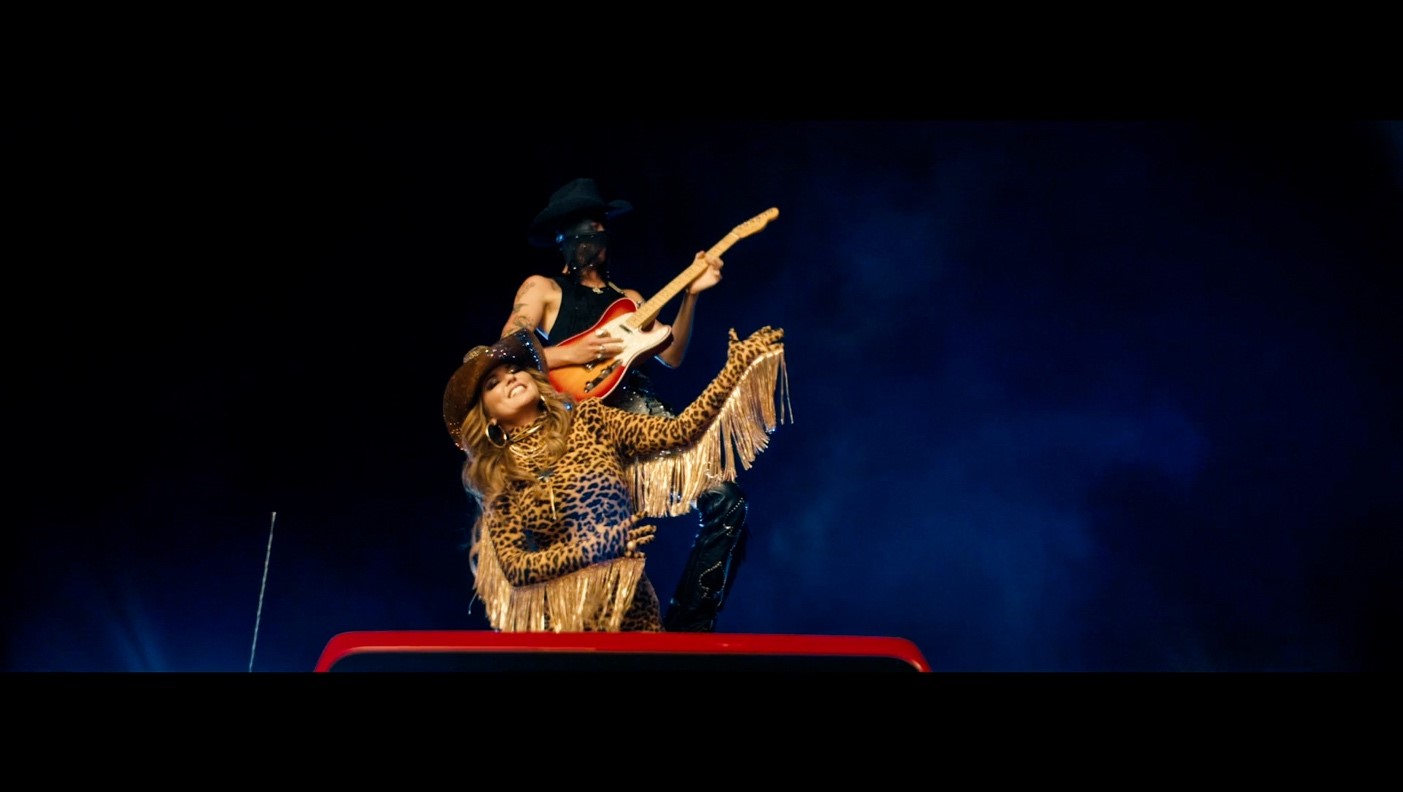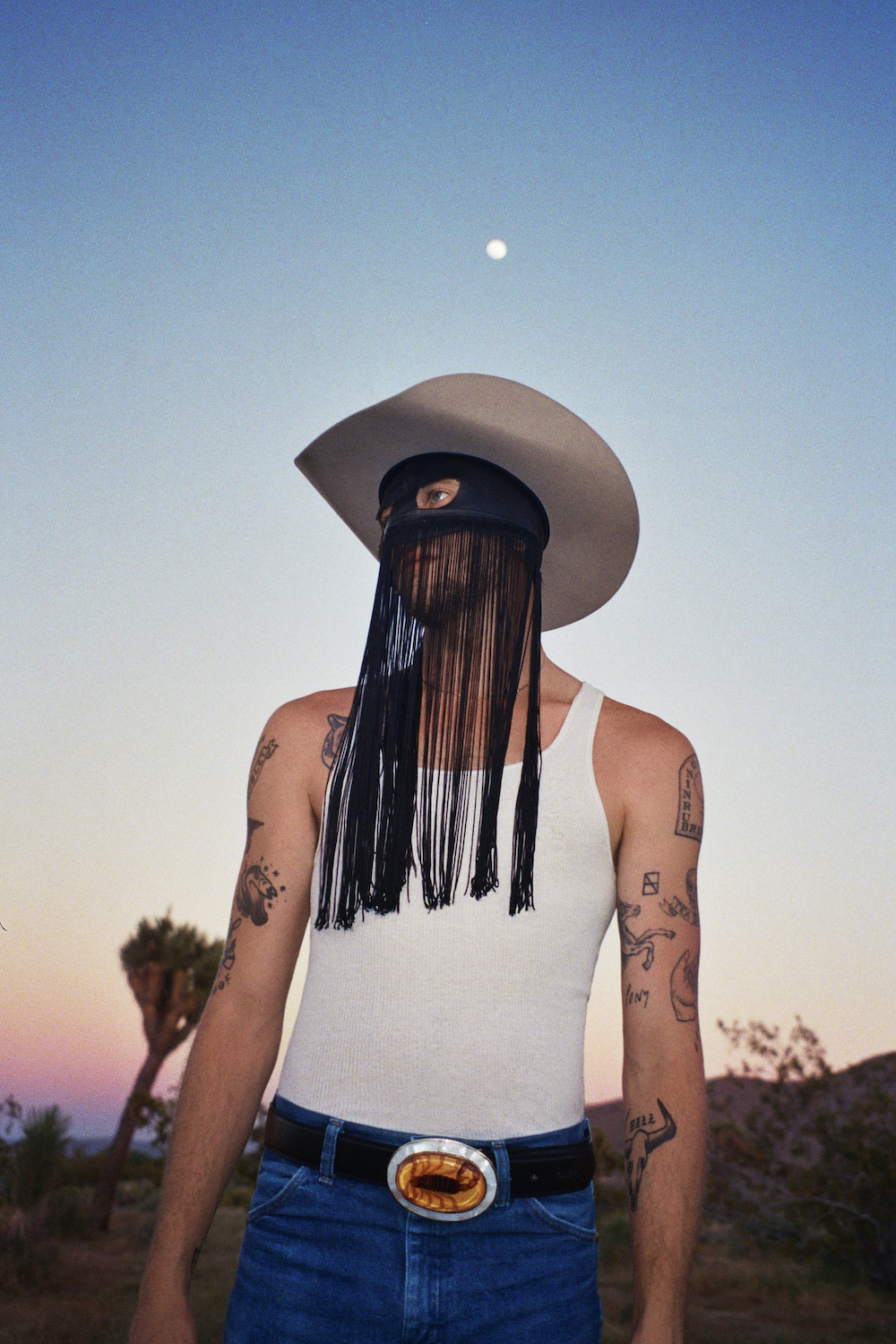Orville Peck Sings Praises for Equality & Shania Twain
“I think people see country as something that doesn’t challenge the status quo. But that’s not the country that I was raised on.”

As far as mythic archetypes go, cowboys aren’t known to possess magical powers. But Orville Peck, dark prince of country, pulled off nothing short of sorcery in enlisting Shania Twain as a partner in crime. The masked crooner and the Canadian diva are thick as thieves on their new duet, “Legends Never Die”—which they performed the other night following the release of the star-studded music video. It’s a match made in honky tonk heaven, uniting disparate eras in country-music pageantry. And it’s one that Peck, a non-normative anomaly when he first masqueraded onto the scene around 2018, never thought would happen: “I started writing a duet with her in mind. Mostly fully knowing it would probably never come to fruition,” he tells VMAN.
In our latest attempt to go behind the mask, VMAN asks Peck about the genesis of the “Legends” collab, the importance of queer idols in country, supporting racial justice and more.
VMAN I don’t think fans could have asked for a more exciting duo than you and Shania Twain. Was she always someone you saw yourself performing with?
Orville Peck In my dreams, maybe. But I’ve obviously been a fan of hers since I was a kid—she’s a very obviously iconic musician, and one of the most prolific entertainers of our time. I think everyone has a memory they can remember about Shania Twain.

VMAN What was that memory for you?
OP [It was] definitely during the “That Don’t Impress Me Much” era. I think that was when I first discovered her—in that famous leopard print outfit. I feel like she was just one of those artists that’s always been in everyone’s TV and radio and just been a part of all of our lives, which is what makes her such a legend.
VMAN How did this collaboration come about?
OP I’d heard she was a fan of mine—which I found really hard to believe at the time—and then, you know, when I found that out, I started writing a duet with her in mind. Mostly fully knowing it would probably never come to fruition. I sent the song to her people and not heard much back, and then I met her at the Grammys, and she said, ‘You know, I loved the song you wrote for us. I would love to work on it with you.’ So, that was an amazing moment and a dream come true. A few months later, we were at her ranch in Las Vegas, recording the song together.
VMAN Growing up, were you always openly a fan of female artists in country openly? Or did you feel like you had to be a fan of the Johnny Cashes—the more masculine idols of the genre?
OP To be honest with you, it’s kind of a two part answer for me, I suppose. In one sense, I personally have never let the ideas of gender, sexuality, masculinity, or femininity ever impose any ideas of what I was allowed to enjoy or be inspired by or champion because, to me, I don’t find the idea of limiting yourself by those standards helpful or interesting. I would say that I definitely would run into things without any sort of bias based on those points, but at the same time, I definitely inherently was drawn towards a lot of female country because I think the struggle of female country artists and the perspective of being innately the underdog, I think that definitely resonated more with me.
That’s not to say that I didn’t also love Johnny Cash and all the male artists as well, but I think as a young gay boy I probably closer related to people like Patsy Cline, Dolly Parton, Tammy Wynette, Shania, Reba, Faith Hill—those kind of singers. I think I could relate to their struggle a little more.
VMAN Whose idea was it to reprise the leopard print?
OP The suggestion came from Shania’s side. I shared what I was going to wear [in the video] and they came back saying that Shania was thinking about maybe wearing leopard print. Of course, all of us were just like, “Oh, well, of course!” We were so excited that she wanted to do that because it was such an iconic moment in fashion and music and everything—the “That Don’t Impress Me Much” video. So the fact that she wanted to give a nod to that in our video was really cool and we said, “Yes, absolutely!”
VMAN Speaking of country divas in the news, Dolly Parton recently vocalized her support of the Black Lives Matter movement. Is there anything you would say to fans of yours who might be in the traditional country-listening demographic?
OP I actually delayed the release of my album to focus on Black Lives Matter, and it’s a very important cause to me. I will always continue to be an activist and advocate for the things I believe in, [because] I think that there is a lot of work to do
Country music especially has actually always been about being an outlaw. Somewhere along the way, in the past ten or 15 years, I think people [started to] see country as something that doesn’t challenge the status quo or question authority. But that’s not the country that I was raised on. I will always continue to shout as loud as possible for anybody who maybe feels like they don’t have a voice. Especially in spheres like country, where those voices tend to get stifled.
But I think there’s a lot changing, and I think it’s a really positive thing that people like Dolly and a couple of other people in the country genre speak up. Jason Isbell has been very vocal…The Chicks are constantly vocal. Hopefully the times will change, but the conversation will carry on and it’s something that we all need to keep focusing on.

Discover More
